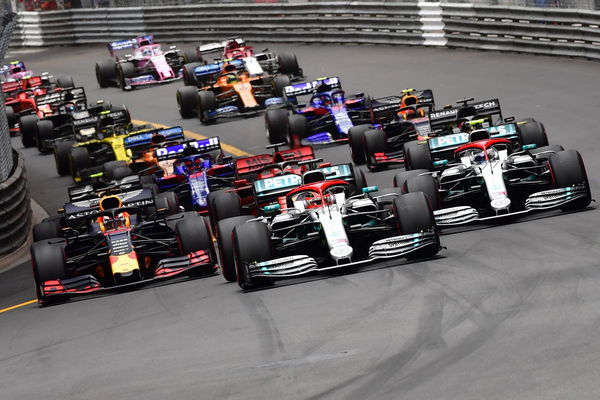

The amended 2020 Formula 1 calendar has officially released, with eight races. Some would think that the sport should cancel the season outright and wait for 2021. However, it is not as simple as that, because cancelling the 2020 F1 season would risk thousands of jobs involved in the industry.
At one point of time, F1 was heading in that direction, with races dropping like flies, as the coronavirus pandemic took its toll. In fact, there were serious thoughts of cancelling the campaign in its entirety.
Luckily, each country have imposed lockdown measures and are trying to deal with the matter effectively. After extensive talks with governments, the teams and the drivers, F1 is finally back, with teams spending 10 weeks across Europe.
ADVERTISEMENT
Article continues below this ad

via Imago
Formula One
Why cancelling the F1 season is a horrible idea
According to a statement, “F1, the FIA and the teams believe that if it’s possible to return to racing safely then they should. There are thousands of jobs directly and indirectly linked to Formula 1 globally, and they believe it is important to support those livelihoods if they can. A cancellation of the season would also put huge pressures on the teams, and F1 wants to ensure they are able to operate.”
ADVERTISEMENT
Article continues below this ad
F1 also confirmed the existence of “contingencies” if a certain country’s situation worsens and it cannot stage an event. Apparently, Hockenheim is willing to step in, if any of the European races drops out unexpectedly.
Interestingly, F1 also confirmed that any positive COVID-19 will not lead to a straight cancellation. Instead, there are protocols in place to deal with the situation.
The statement continued, “F1 has learnt a lot since Australia. Procedures and safeguards are now in place to reduce the chances of anyone infected travelling to a race.”
ADVERTISEMENT
Article continues below this ad
“New procedures, such as pre-testing, regular testing, screening, sealed travel and social distancing will make this a less likely scenario. F1 are confident their plans will manage this risk. However, there is a robust infection response plan in place, if required, like many other returning sports competitions.”
“In the event of a positive case F1 are fully confident of the procedures. Team segregation will allow swift and effective contact tracing across a small group. Rapid testing will be provided to determine the risk of infection and isolate it immediately.”
ADVERTISEMENT
ADVERTISEMENT
ADVERTISEMENT
